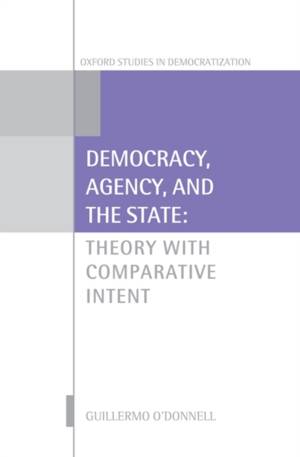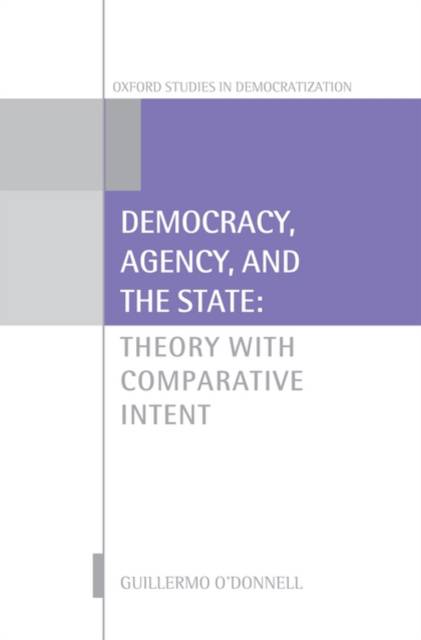
Bedankt voor het vertrouwen het afgelopen jaar! Om jou te bedanken bieden we GRATIS verzending (in België) aan op alles gedurende de hele maand januari.
- Afhalen na 1 uur in een winkel met voorraad
- In januari gratis thuislevering in België
- Ruim aanbod met 7 miljoen producten
Bedankt voor het vertrouwen het afgelopen jaar! Om jou te bedanken bieden we GRATIS verzending (in België) aan op alles gedurende de hele maand januari.
- Afhalen na 1 uur in een winkel met voorraad
- In januari gratis thuislevering in België
- Ruim aanbod met 7 miljoen producten
Zoeken
€ 233,95
+ 467 punten
Omschrijving
Democracy, Agency, and the State aims to contribute to a comparatively informed theory of democracy. Professor O'Donnell begins by arguing that conceptions of 'the state' and 'democracy', and their respective defining features, significantly influence each other. Using an approach that is both historical and analytical, he traces this relationship through the idea of legally sanctioned and backed agency which grounds democratic citizenship. From this standpoint he explores several aspects of the democratic regime and of the state, distinguishing four constitutive dimensions (bureaucracy, legality, focus of collective identity, and filter). He goes on to examine the role played by the idea of 'the nation' or 'the people', and the ways in which the state represents itself to different sections of society, especially in countries marred by deep inequality and pervasive poverty. Drawing on the examples of democratic and non-democratic regime, he discusses the dialogical spaces congenial to democracy, as well as examining the options that may or may not enable agency, and the complex comparative and ethical issues raised by the intersection of agency with globalization and legal pluralism.Throughout these discussions several comparative vistas are opened, especially but not exclusively toward Latin America. The book concludes by offering a justification of democracy, even of the flawed democracies that nowadays abound. Oxford Studies in Democratization is a series for scholars and students of comparative politics and related disciplines. Volumes concentrate on the comparative study of the democratization process that accompanied the decline and termination of the cold war. The geographical focus of the series is primarily Latin America, the Caribbean, Southern and Eastern Europe, and relevant experiences in Africa and Asia. The series editor is Laurence Whitehead, Official Fellow, Nuffield College, Oxford University.
Specificaties
Betrokkenen
- Auteur(s):
- Uitgeverij:
Inhoud
- Aantal bladzijden:
- 272
- Taal:
- Engels
- Reeks:
Eigenschappen
- Productcode (EAN):
- 9780199587612
- Verschijningsdatum:
- 20/08/2010
- Uitvoering:
- Hardcover
- Formaat:
- Genaaid
- Afmetingen:
- 156 mm x 234 mm
- Gewicht:
- 557 g

Alleen bij Standaard Boekhandel
+ 467 punten op je klantenkaart van Standaard Boekhandel
Beoordelingen
We publiceren alleen reviews die voldoen aan de voorwaarden voor reviews. Bekijk onze voorwaarden voor reviews.









